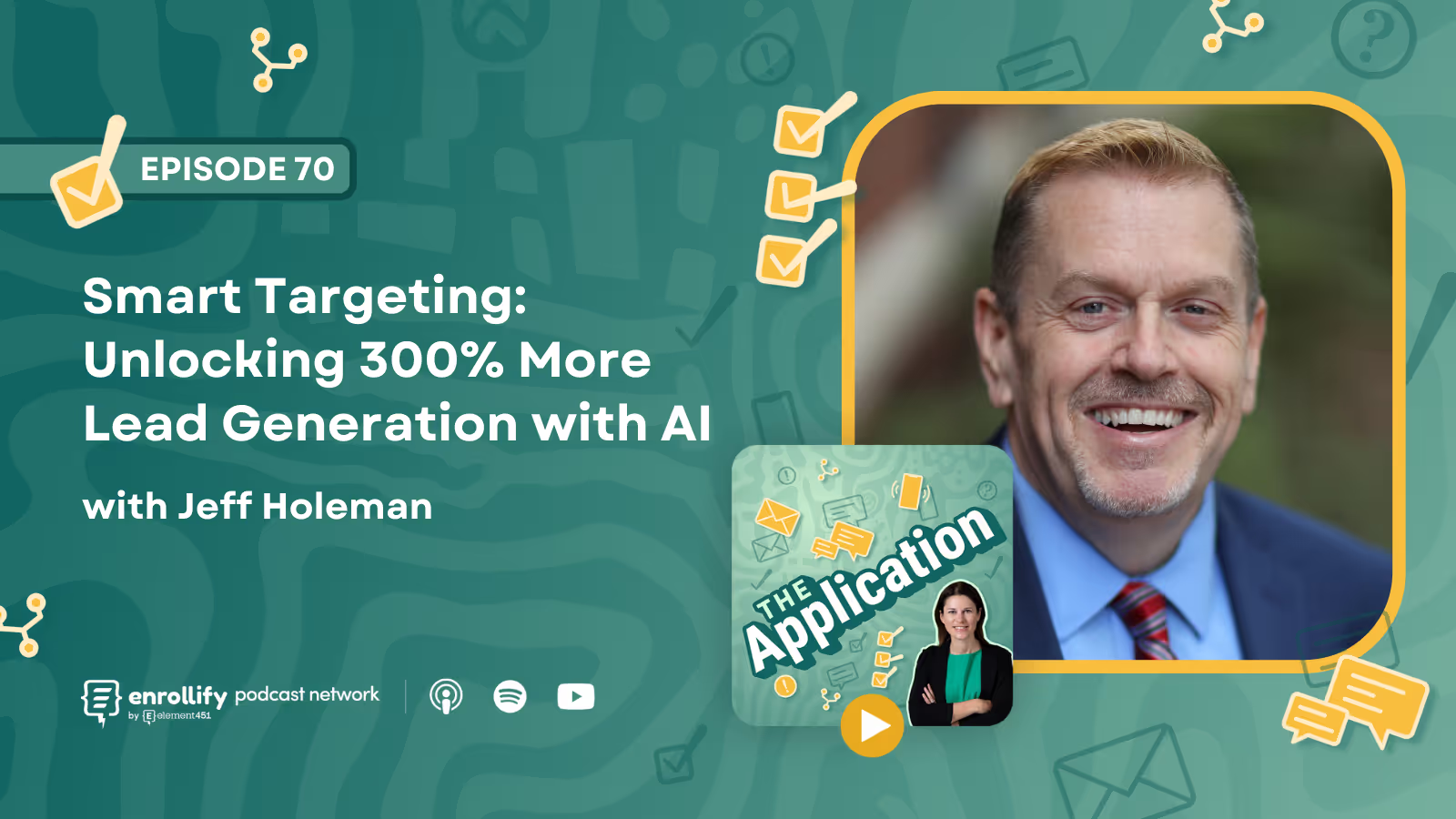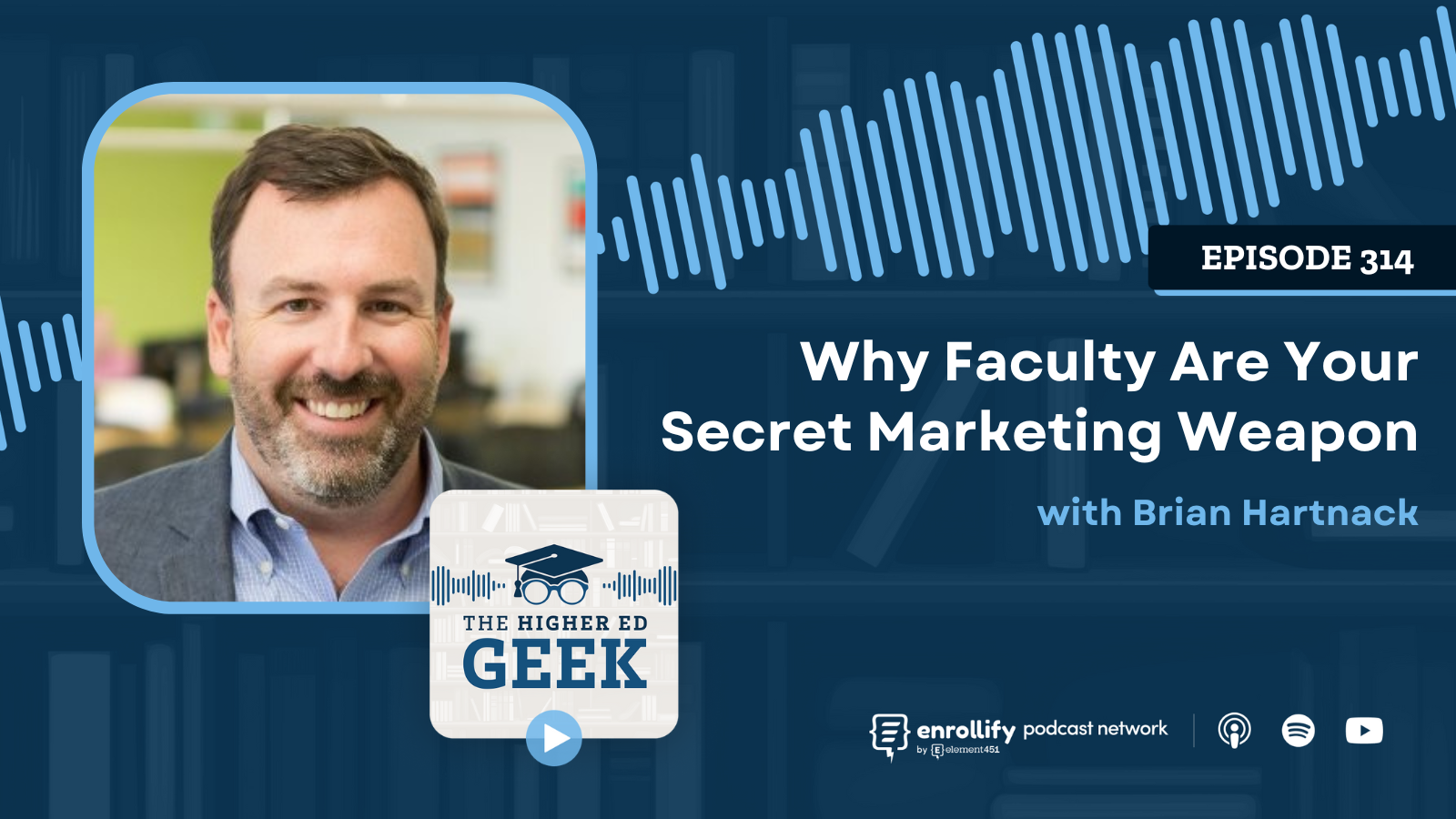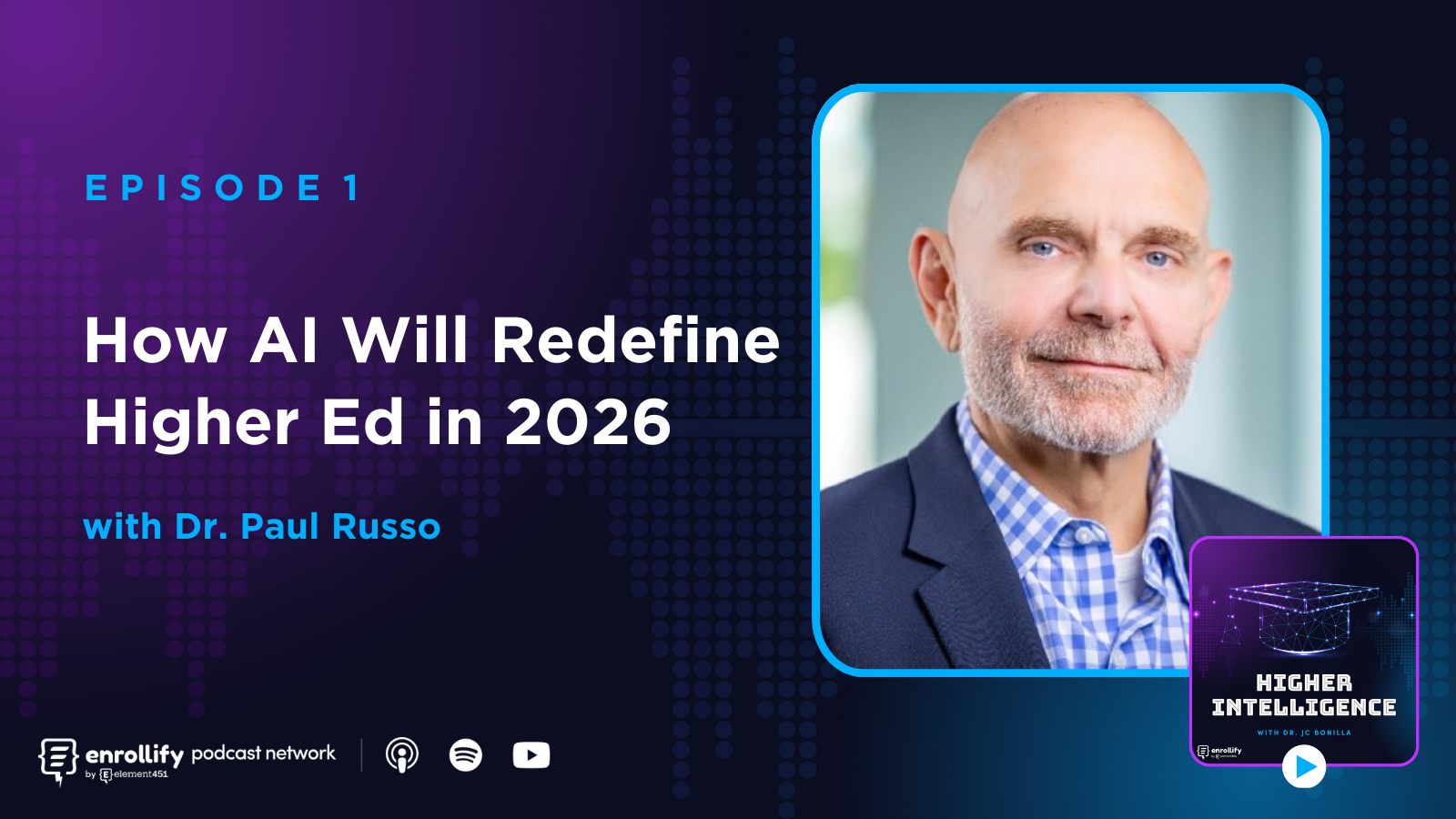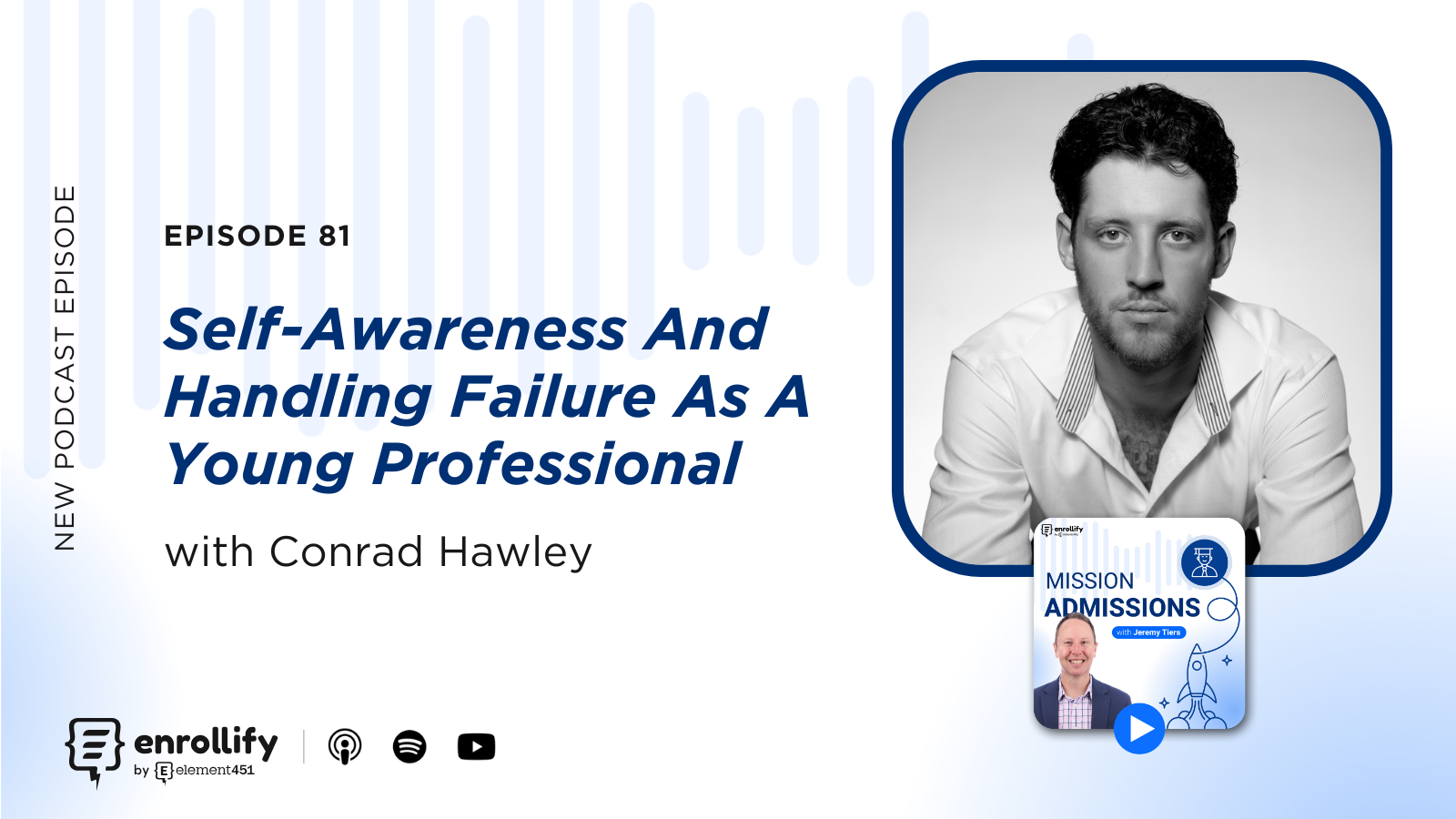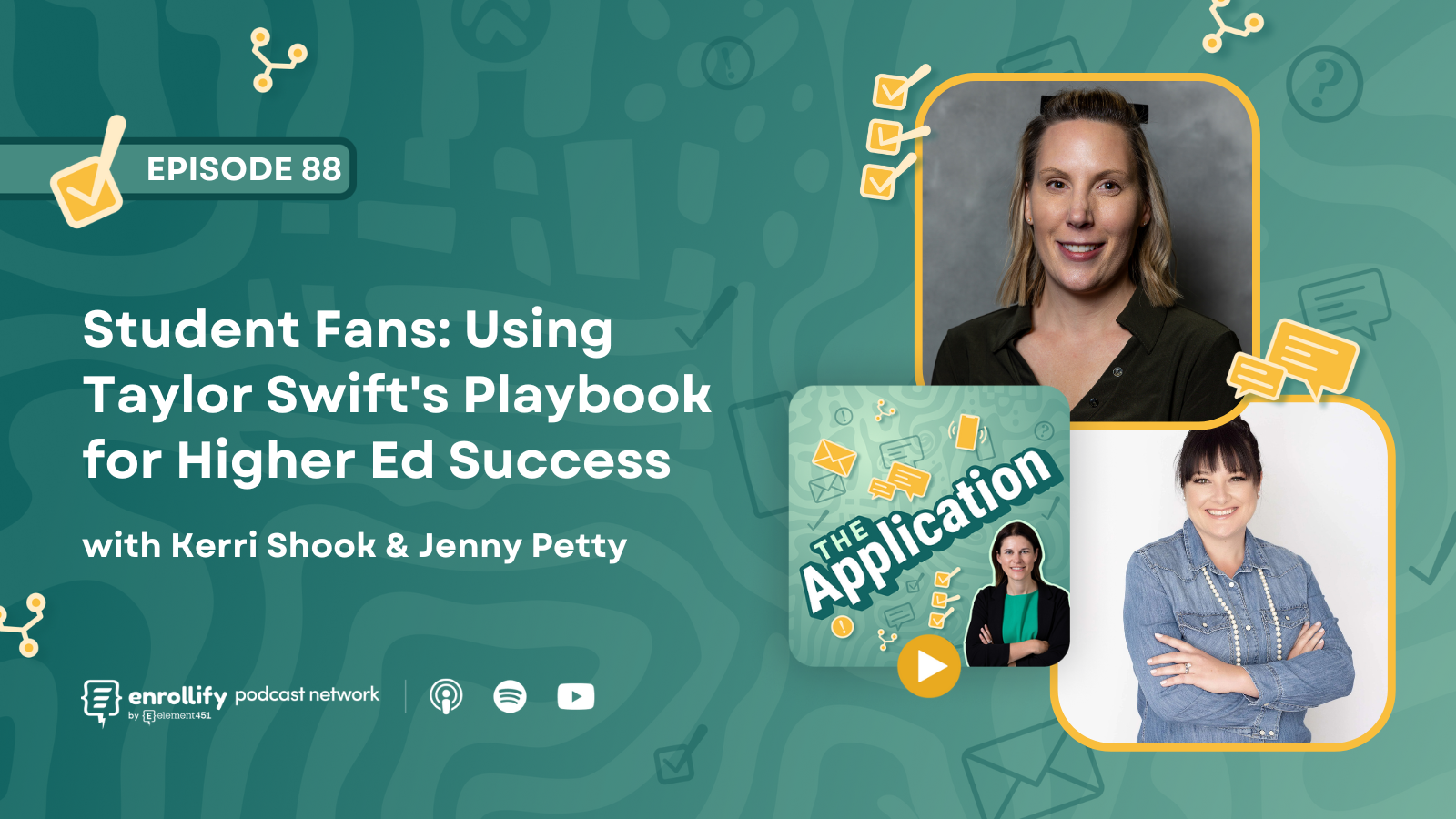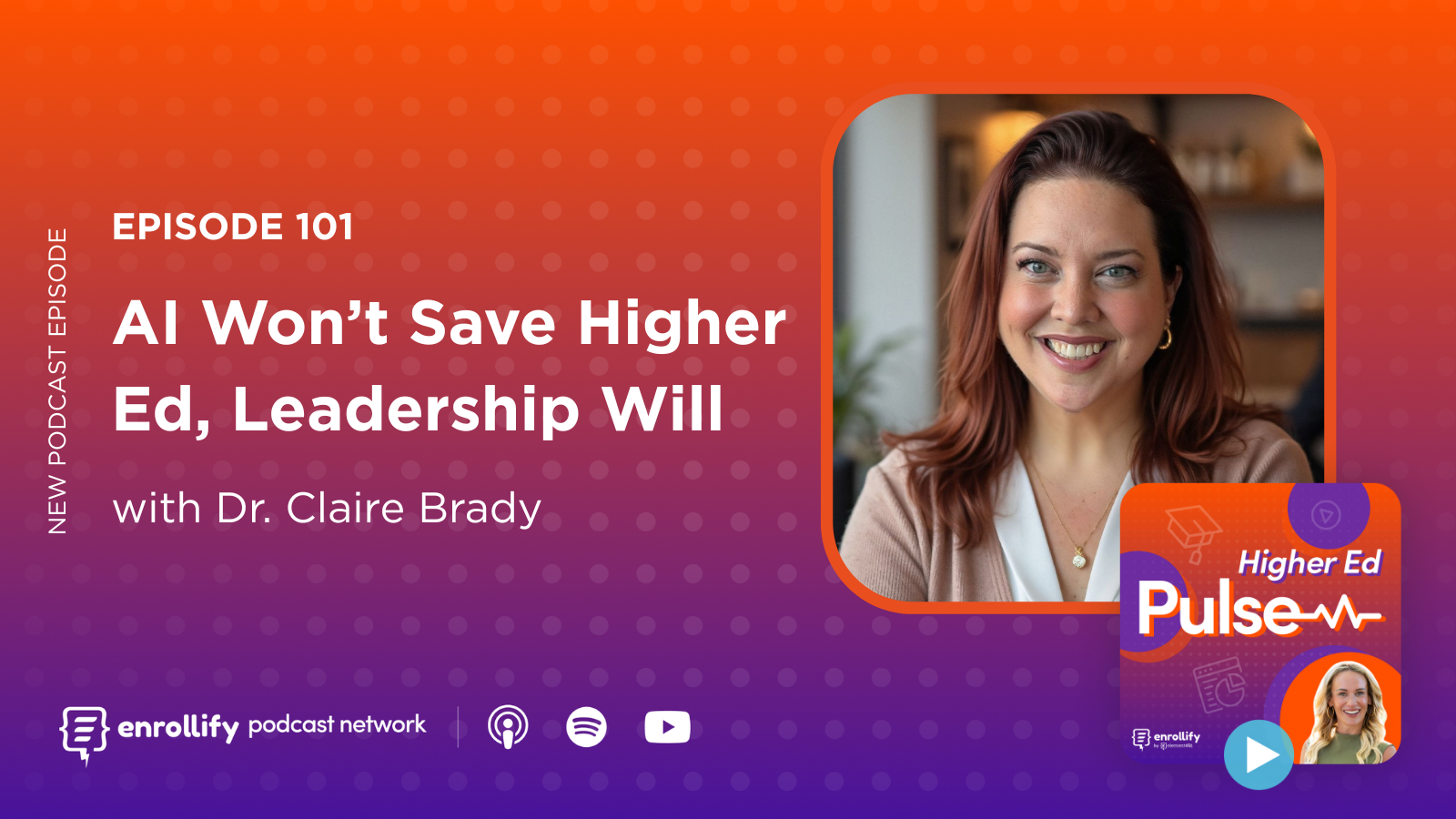About the Episode
Got a story to tell? An innovative idea to share? Fill out our guest nomination form and let's chat!
About the Episode:
How do you triple your lead generation while cutting costs in half? In this episode, Jeff Holeman from the University of Florida’s Warrington College of Business reveals how his team transformed their paid lead generation strategy — leading to a 300% increase in leads and a 50% drop in costs. Jeff also shares insights on balancing automation with human oversight and building an effective lead engagement scoring model to help admissions teams focus on the best candidates.
Discover how leveraging first-party data, AI-driven ad platforms, and behavior-based targeting helped them move beyond outdated demographic models to find the right prospects faster.
Join us as we discuss:
- [3:51] The transition from lookalike audiences to behavior-based targeting
- [11:22] Why you still need humans to fact-check your AI tools’ outputs
- [16:58] How to implement lead scoring to help admissions focus on the best candidates
Check out these resources we mentioned during the podcast:
To hear this interview and many more like it, subscribe on Apple Podcasts, Spotify, or our website, or search for “The Application with Allison Turcio” in your favorite podcast player.
What prompted UF Warrington’s shift in lead generation strategy?
Jeff stepped into a newly created role at the Warrington College of Business and immediately noticed a gap in data-informed strategy. Prior efforts were heavily top-of-funnel, with little attention paid to performance metrics, ROI, or full-funnel optimization. His goal was to instill strategic thinking and assess how digital ads were (or weren’t) impacting enrollment.
The audit revealed a crucial insight: UF was spending heavily without leveraging the tools available to them—especially first-party data and AI-powered platforms. The result was a lead gen approach that lacked precision and conversion insight. This realization triggered a total overhaul in strategy.
How did the team use AI and predictive analytics to improve results?
Jeff’s team leaned into AI in higher education marketing, especially tools offered by Google (Performance Max and Demand Gen) and LinkedIn. These platforms use behavior-based targeting—instead of relying on static demographics, they seek out users who act like your best prospects.
By feeding enrollment activity, preferences, and demographics into these platforms, UF was able to attract candidates who hadn’t even raised their hands yet. The results? A 300% lift in leads within six months and a dramatic drop in cost per lead. This AI-led targeting made the outreach more effective and efficient.
What’s the role of first-party data in ad targeting?
First-party data—everything from form fills and event attendance to email clicks and page views—was the secret weapon. Unlike third-party cookies (which are being phased out), first-party data is owned by the institution and can be fed directly into ad platforms. This allows marketers to create behavior-based audiences and engage users at key points in the funnel.
In Jeff’s words, this shift means you're no longer waiting for someone to declare interest—you’re identifying and nurturing intent before it becomes explicit. This proactive approach significantly widened their reach and pulled in higher-quality leads.
What tools and platforms worked best for UF?
While Google and LinkedIn provided the highest returns, the team also tested Meta (Facebook/Instagram). Over time, LinkedIn outperformed Meta for graduate audiences. The key lesson: test, analyze, and double down on what works. Different platforms will perform better depending on your audience type and program offering.
Another major enabler was their CRM. As a Salesforce campus, they utilized built-in lead scoring within their digital marketing platform. This made it easier to filter out low-intent leads and give the admissions team a real-time view of which contacts deserved the most attention.
How did they implement lead scoring?
UF categorized leads into low, average, and hot tiers based on engagement with digital touchpoints. High-value activities—like attending an info session or scheduling a call—were weighted more heavily. Leads with a score over 100 were considered “hot” and given top priority by the admissions team.
This system empowered admissions officers to focus their time and energy on the most likely enrollees, helping improve follow-up quality and conversion rates. And if your CRM doesn’t have a built-in scoring feature? Jeff suggests starting with a simple rubric based on your available data and partnering closely with admissions to define intent signals.
What if a school doesn’t have a big ad budget?
This may be the most encouraging part of the episode. Jeff pushes back against the misconception that you need a massive paid media budget to succeed. His team launched a niche Doctor of Business Administration campaign with just $20K over four months and saw a 30% increase in applications—and lower costs than their more general campaigns.
The takeaway: Start small, test wisely, and prove value early. Results fuel budget increases, not the other way around.
Connect With Our Host:
Allison Turcio
https://www.linkedin.com/in/allisonturcio/
https://twitter.com/allisonturcio
About The Enrollify Podcast Network: The Application with Allison Turcio is a part of the Enrollify Podcast Network. If you like this podcast, chances are you’ll like other Enrollify shows, too!
Some of our favorites include Mission Admissions and Visionary Voices: The College President’s Playbook.
Enrollify is made possible by Element451 — the next-generation AI student engagement platform helping institutions create meaningful and personalized interactions with students. Learn more at element451.com.
Attend the 2025 Engage Summit!
The Engage Summit is the premier conference for forward-thinking leaders and practitioners dedicated to exploring the transformative power of AI in education.
Explore the strategies and tools to step into the next generation of student engagement, supercharged by AI. You'll leave ready to deliver the most personalized digital engagement experience every step of the way.
👉🏻 Register now to secure your spot in Charlotte, NC, on June 24-25, 2025!







